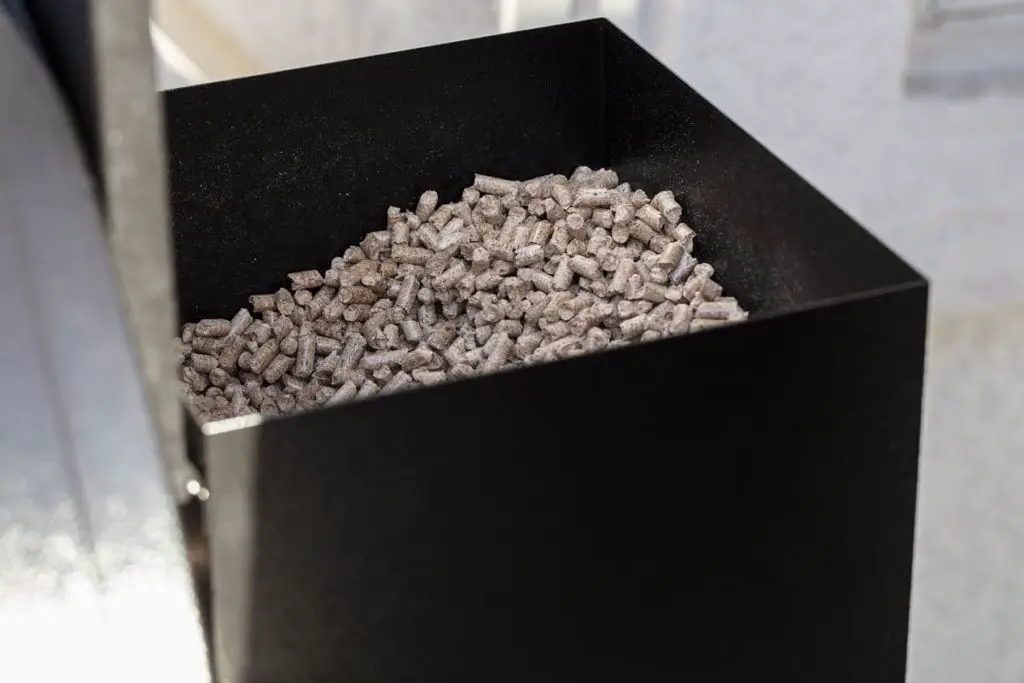If you’re thinking about purchasing an electric grill, you may be wondering how many watts it uses. The wattage of an electric grill can vary depending on its size, model, and efficiency. Knowing the wattage of your electric grill can help you estimate your energy costs and determine if it’s the right choice for your needs.

Most electric grills fall in the range from 750-2,000 watts of power, depending on their efficiency, capacity, and grilling temperature range. There are some models that might go under 750 watts, usually small ones for one to two servings, or bigger ones that exceed the 2,000 watts all the way up to 3,000 watts or more. The wattage of an electric grill can affect its cooking time, temperature, and overall performance. Understanding the wattage of an electric grill can help you choose the right model for your needs and budget.
Understanding Electric Grills

If you are looking for a convenient way to cook your favorite meals indoors, an electric grill might be a great option for you. Electric grills are easy to use, require little maintenance, and can be used in any weather conditions. In this section, we will discuss the basics of electric grills and how they work.
How Electric Grills Work
Electric grills are powered by electricity and use heating elements to cook food. The heating elements are usually made of metal and are located beneath the cooking surface. When you turn on the grill, the heating elements heat up and transfer heat to the cooking surface. The cooking surface can be made of a variety of materials such as cast iron, aluminum, or stainless steel.
Electric grills come in different sizes and shapes, but they all work in a similar way. Some electric grills have a built-in temperature control, while others require you to adjust the temperature manually. Most electric grills also have a drip tray that collects grease and other liquids that drip from the food during cooking.
Wattage of Electric Grills
The wattage of an electric grill can vary depending on the size and model. Generally speaking, electric grills use between 500 and 1800 watts of power. Smaller grills typically use around 500 watts, while larger grills can use up to 1800 watts. The wattage of an electric grill is usually printed on the label or in the manual.
The wattage of an electric grill is important because it affects how quickly the grill heats up and how evenly it cooks food. A higher wattage means that the grill will heat up faster and cook food more evenly. However, a higher wattage also means that the grill will use more electricity and cost more to operate.
Energy Efficiency of Electric Grills
Electric grills are generally more energy-efficient than gas or charcoal grills. They use less energy to heat up and maintain the cooking temperature, which means that they cost less to operate. Additionally, electric grills do not produce any emissions, which makes them a more environmentally friendly option.
To maximize the energy efficiency of your electric grill, make sure to preheat it before cooking and only use as much heat as you need. You can also use a grill cover to help retain heat and reduce cooking time.
Overall, electric grills are a great option for anyone who wants to enjoy grilled food indoors. They are easy to use, energy-efficient, and produce great-tasting food. Just make sure to choose a grill with the right wattage for your needs and use it responsibly to minimize your energy consumption.
Average Wattage of Electric Grills

When it comes to electric grills, their wattage can vary depending on the size and model of the grill. On average, electric grills use between 500 and 1500 watts of power. Smaller grills typically use around 500 watts, while larger grills can use up to 1500 watts. The wattage of an electric grill is usually printed on the label or in the manual.
According to EnergyBot, the average electric grill uses 1800 watts. However, this number can vary depending on the brand, size, and other factors. It is always a good idea to check the wattage of your electric grill before using it to ensure that you are not exceeding your home’s electrical capacity.
It is important to note that the wattage of an electric grill can also affect its cooking performance. A higher wattage grill will generally heat up faster and cook food more quickly than a lower wattage grill. However, a higher wattage grill may also consume more electricity and cost more to operate.
Overall, the average wattage of an electric grill is around 1200-1700 watts, but this can vary depending on the specific grill model. By checking the wattage of your electric grill and using it efficiently, you can enjoy delicious grilled food while minimizing your electricity usage.
Factors Influencing Watt Usage in Electric Grills

When it comes to electric grills, watt usage can vary depending on several factors. Here are some of the main factors that can influence the watt usage of an electric grill.
Grill Size
The size of your electric grill can play a significant role in how many watts it uses. Generally speaking, smaller grills use less wattage than larger grills. For instance, a small electric grill may only use around 500 watts, while a larger grill can use up to 1500 watts. It’s important to keep this in mind when shopping for an electric grill, as a larger grill may use more electricity than you expect.
Temperature Settings
Another factor that can influence the watt usage of your electric grill is the temperature setting. The higher the temperature, the more watts your grill will use. For example, if you’re grilling at a high temperature of 450°F, your grill may use up to 1800 watts. However, if you’re grilling at a lower temperature of 250°F, your grill may only use around 1000 watts. It’s important to adjust your temperature settings accordingly to help conserve energy.
Usage Duration
The amount of time you use your electric grill can also impact how many watts it uses. The longer you use your grill, the more electricity it will consume. For instance, if you’re grilling for an hour, your grill may use around 1.5 kilowatt-hours of electricity. It’s important to keep this in mind when planning your grilling sessions, as shorter grilling sessions can help you save on electricity.
In conclusion, several factors can influence the watt usage of your electric grill, including size, temperature settings, and usage duration. By keeping these factors in mind, you can help conserve energy and reduce your electricity bill.
Comparison with Other Cooking Appliances

When it comes to cooking appliances, electric grills are just one of many options available to you. Each type of appliance has its own pros and cons, so it’s important to know how they compare to each other. In this section, we’ll take a look at how electric grills stack up against gas grills, ovens, and stovetops.
Gas Grill
Gas grills are a popular choice for outdoor cooking. They use propane or natural gas to heat up the grilling surface, which can be made of various materials such as cast iron or stainless steel. Gas grills are generally more powerful than electric grills, with some models capable of producing up to 100,000 BTUs of heat. However, they can also be more expensive to operate because of the cost of gas.
Oven
Ovens are a staple in most kitchens. They use electricity or gas to heat up the interior, which can be used to bake, broil, or roast food. Ovens are generally more versatile than electric grills, as they can be used for a wider range of cooking methods. However, they can also be less energy-efficient than electric grills, especially if you’re only cooking a small amount of food.
Stovetop
Stovetops are another common cooking appliance found in most kitchens. They use gas or electricity to heat up the cooking surface, which can be made of various materials such as cast iron or ceramic glass. Stovetops are generally more versatile than electric grills, as they can be used for a wider range of cooking methods. However, they can also be less energy-efficient than electric grills, especially if you’re only cooking a small amount of food.
In summary, electric grills are a great option for outdoor cooking or for those who want a compact, energy-efficient cooking appliance. However, they may not be the best choice for everyone. If you’re looking for a more powerful cooking appliance, a gas grill might be a better choice. If you’re looking for a more versatile cooking appliance, an oven or stovetop might be a better choice.
Ways to Reduce Electric Grill Energy Consumption
https://www.youtube.com/watch?v=e9LmcYa0-XI&embed=true
If you want to reduce the energy consumption of your electric grill, there are a few things you can do. By following these tips, you can save money on your electricity bill and reduce your carbon footprint.
Proper Maintenance
Proper maintenance of your electric grill can help it run more efficiently and use less energy. Here are some tips:
- Clean the grill regularly: A dirty grill can reduce its efficiency. Clean the grill grates and the interior of the grill regularly to remove any grease or debris.
- Check the heating element: Make sure the heating element is clean and not damaged. A dirty or damaged heating element can reduce the grill’s efficiency and increase energy consumption.
- Store the grill properly: When not in use, store the grill in a dry, cool place. This will help prevent rust and other damage, which can reduce the grill’s efficiency.
Efficient Cooking Practices
Efficient cooking practices can also help reduce the energy consumption of your electric grill. Here are some tips:
- Preheat the grill: Preheating the grill can help it reach the desired temperature faster, which can reduce cooking time and energy consumption.
- Use the right temperature: Use the right temperature for the food you are cooking. Cooking at a lower temperature can take longer and use more energy, while cooking at a higher temperature can burn the food and waste energy.
- Use the right cookware: Use cookware that is the right size for the food you are cooking. Using a large pot or pan on a small burner can waste energy, while using a small pot or pan on a large burner can take longer and use more energy.
- Use the grill lid: Using the grill lid can help trap heat and reduce cooking time, which can save energy.
By following these tips, you can reduce the energy consumption of your electric grill and save money on your electricity bill.
Conclusion

Now that you know how many watts an electric grill uses, you can make an informed decision when choosing the right grill for your needs.
Keep in mind that the wattage of an electric grill can vary depending on the size and model. Smaller grills typically use around 500 watts, while larger grills can use up to 1500 watts. The average electric grill uses between 1200 – 1700 watts.
When shopping for an electric grill, make sure to check the wattage information on the label or in the manual. This will give you an idea of how much electricity the grill will use and how it will impact your energy bill.
Remember that electric grills are generally more energy-efficient than gas or charcoal grills, and they produce less smoke and pollution. They are also easy to use and maintain, and they can be used indoors or outdoors.
Overall, an electric grill is a great option for anyone who loves to grill but wants to save energy and money. With the right grill and a little bit of know-how, you can enjoy delicious grilled food all year round without breaking the bank.
Frequently Asked Questions
https://www.youtube.com/watch?v=UFCuXgljYSA&embed=true
What is the typical wattage of an electric grill?
The typical wattage of an electric grill ranges from 800 to 1500 watts, depending on the size and model of the grill. Some models with additional features like a rotisserie system may draw more power, typically between 2000 to 2500 watts.
How much electricity does an electric grill use per hour?
On average, an electric grill uses around 1.5 kilowatt-hours per hour of use, based on the average grill wattage of 1,500 watts, and assuming that you turn it on the highest temperature. The actual electricity consumption may vary depending on the grill’s wattage and how long you use it.
Can I use an electric grill on my balcony?
It depends on your building’s rules and regulations. Some buildings may allow electric grills on balconies as they are considered safer than gas or charcoal grills. However, some buildings may prohibit any type of grill on balconies due to fire hazards. It’s best to check with your building management before using an electric grill on your balcony.
What are some good electric grills for outdoor use?
Some good electric grills for outdoor use include the Weber Q2400 Electric Grill, the Char-Broil Patio Bistro Electric Grill, and the George Foreman Indoor/Outdoor Electric Grill. These grills are designed to withstand outdoor conditions and provide excellent grilling performance.
Are electric grills more energy-efficient than gas grills?
Electric grills are generally more energy-efficient than gas grills, as they use less energy to heat up and maintain the desired temperature. They also produce less waste heat, which can help reduce your energy bills.
What are the benefits of using an electric grill over a traditional grill?
Using an electric grill has several benefits over a traditional grill. Electric grills are easier to use and provide consistent heat, which can help you achieve perfectly cooked food every time. They also produce less smoke and require less maintenance than traditional grills. Additionally, electric grills are safer to use, as they don’t produce open flames or emit harmful gases.



